Book review: Iran from a new Indian perspective
In the absence of a debate in India on Iran’s nuclear programme, ‘Troubling Tehran' is a significant first attempt to go beyond Western narratives and ask pertinent questions
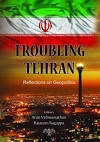 Courtesy: Pentagon Press
Courtesy: Pentagon Press
In the absence of a debate in India on Iran’s nuclear programme, ‘Troubling Tehran' is a significant first attempt to go beyond Western narratives and ask pertinent questions
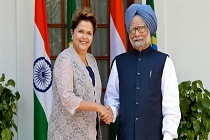 Courtesy: Roberto Stuckert Filho/Wikimedia Commons
Courtesy: Roberto Stuckert Filho/Wikimedia Commons
In 'India-Latin America Engagements', the Latin America Desk at Gateway House presents a selection of news of India’s engagement with the region during the previous month
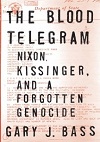 Courtesy: Knopf
Courtesy: Knopf
In ‘The Blood Telegram’ Gary Bass jolts us into recalling one of the most horrific genocides of the last century that occurred during the creation of Bangladesh
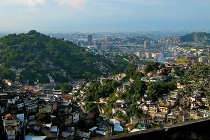 Courtesy: @Doug88888
Courtesy: @Doug88888
Gateway House’s Akshay Mathur recently visited Brazil to attend a BRICS-themed conference, organised by the National Association of Research and Graduate Programs in the Social Sciences. In this blog, he writes about his first impressions of the country and the similarities between India and Brazil that he observed.
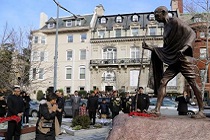 Courtesy: Indian Embassy, Washington D.C.
Courtesy: Indian Embassy, Washington D.C.
This daily column includes Gateway House’s Badi Soch – big thought – of the day’s foreign policy event. This Badi Soch analyses the implications of revelations about surveillance on Indian missions, by the U.S. government.
 Courtesy: United Nations ESCAP
Courtesy: United Nations ESCAP
Rajni Bakshi, Senior Gandhi Peace Fellow, Gateway House, delivered a lecture at the ‘International Day of Non-Violence’ at the UN Convention Centre in Thailand, on October 2. In her lecture, she spoke about the significance and the greater potential of non-violent means in achieving the goals of today’s world.
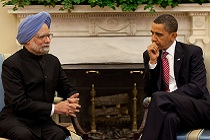 Courtesy: Pete Souza/Wikimedia Commons
Courtesy: Pete Souza/Wikimedia Commons
Since 2009, distraction and dysfunction in India and the U.S. resulted in low enthusiasm vis-à-vis bilateral ties. Indian Prime Minister Manmohan Singh, who met U.S. President Barack Obama, prior to the UNGA, had one last chance to salvage India-U.S. ties before the country goes to elections in 2014. Did he succeed?
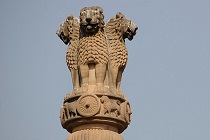 Courtesy: Ashok/Flickr
Courtesy: Ashok/Flickr
Ahead of the Indian Prime Minister’s meetings with his counterparts from Nepal, Bangladesh and Pakistan on the sidelines of the UNGA, Ambassador Neelam Deo and Manjeet Kripalani blog about why India will only be able to conduct its foreign policy overseas, away from its raucous media and opposition parties
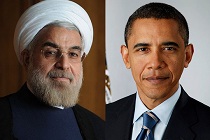 Courtesy: WikimediaCommons
Courtesy: WikimediaCommons
The positive advances made by newly-elected Iranian President Hassan Rouhani and U.S. President Barack Obama at the 68th UN General Assembly indicates a strong potential for a thaw in Tehran-Washington relations. However, it will take sincere efforts from both sides to turn this into concrete reality. Can India help?
 Courtesy: millerm217/Flickr
Courtesy: millerm217/Flickr
India’s extreme dependence on imported energy often renders our economy vulnerable in the face of geopolitical changes. Given the high financial viability, India, being the world’s second-largest producer of sugarcane, should emulate Brazil by replacing petrol with ethanol as fuel.